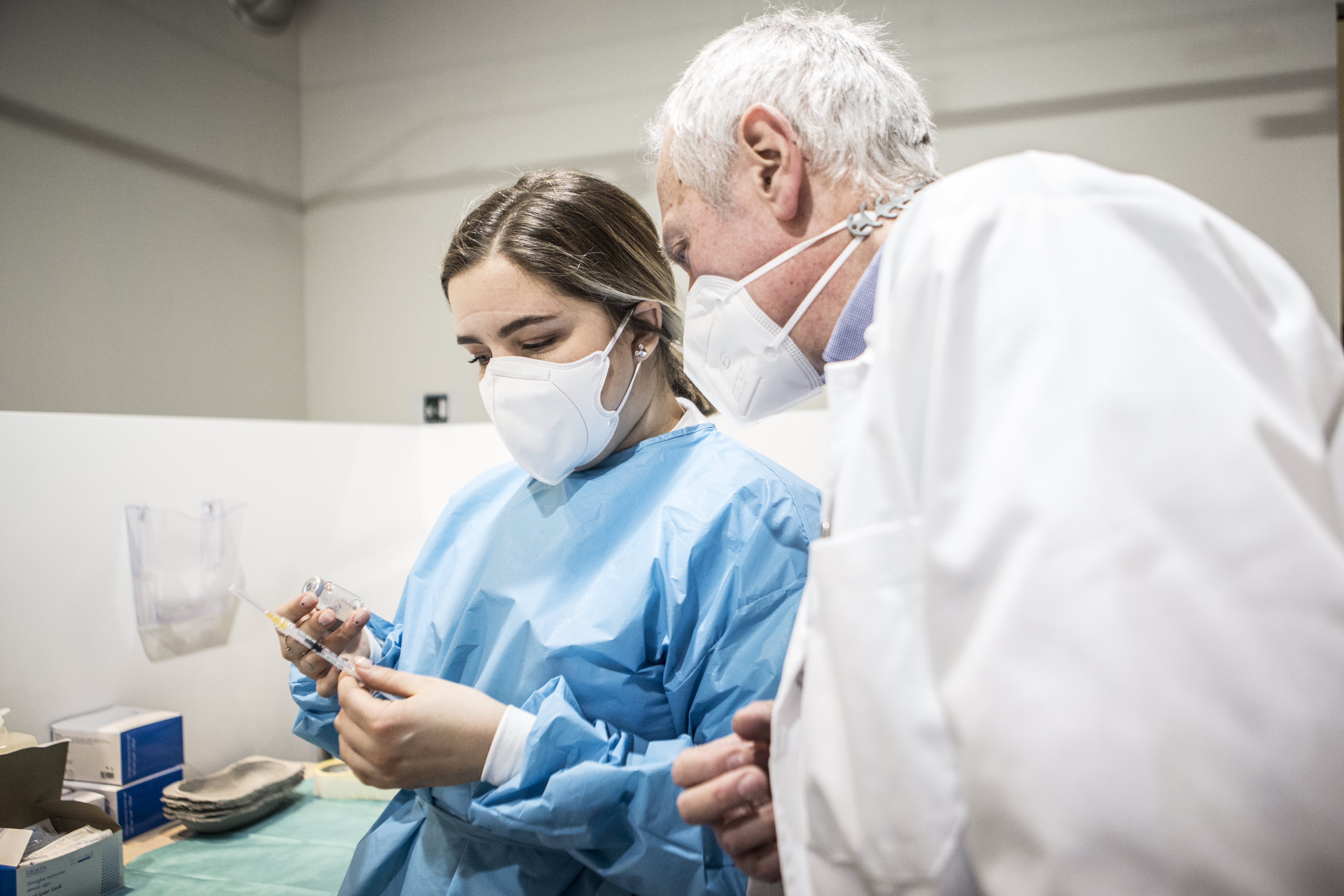
Nurse prepares doses of Covid-19 vaccine.
Alessandra Benedetti – Corbis | Corbis News | Getty Images
LONDON – The UK will be the first country in the world to conduct a Covid-19 “human challenge” study, following approval by the country’s clinical trial ethics body.
In the first human challenge Covid-19 trial, up to 90 volunteers aged 18-30 years will be exposed to Covid-19 “in a safe and controlled environment to better understand the virus’s effects on humans” , the British government said in a statement. Wednesday.
Researchers are calling on healthy young people, who are least at risk of complications from the coronavirus, to volunteer for the study. Volunteers are compensated for the time they spend on the study, which starts within a month.
The study is supported by a £ 33.6 million ($ 46.6 million) investment from the UK Government, with the trial being conducted through a partnership between the Government’s Vaccines Task Force, Imperial College London, the Royal Free London NHS Foundation Trust and clinical company hVIVO, which pioneered viral human challenge models.
How it works
The study involves identifying the smallest amount of virus needed to cause infection (known as a virus characterization study) in which volunteers are exposed “in a safe and controlled environment,” the government said.
“The safety of volunteers is paramount, which means that this virus characterization study will initially use the version of the virus that has been circulating in the UK since March 2020 and has been shown to be low risk in young healthy adults,” he added to. Medicians and scientists will closely monitor the effect of the virus on volunteers and are available 24 hours a day.
The study will help doctors understand how the immune system responds to coronavirus and identify factors that affect how the virus is transmitted, including how a person infected with Covid-19 transmits infectious virus particles into the environment.
Once the initial study has taken place, the participants can receive an approved vaccine and then be exposed to the Covid-19 virus to identify the most effective vaccines.
Considerations
Such studies are not without controversy, as participants are deliberately exposed to pathogens, but they are seen as a key role in developing effective vaccines and treatments.
“For many decades, human challenge studies have been conducted safely and have played an important role in accelerating the development of treatments for diseases such as malaria, typhoid, cholera, norovirus and influenza,” noted the UK government.
World Health Organization guidelines say that human challenge tests are ethical if they meet certain criteria. There must be clear protections, experts said, including that subjects are relatively young and in good health and receive the highest quality medical care with regular monitoring.
The WHO notes that it is essential that challenge testing “be conducted within an ethical framework that includes genuine informed consent” and that it should be conducted with “abundant precaution, prudence and supervision”.
Possible individual risks and benefits must be considered, according to WHO, as well as possible social benefits and risks, such as the release into the environment of a pathogen that might otherwise not be present.
The UK human challenge test will take place over the next few weeks at the specialized and secure clinical research facilities of the Royal Free Hospital in London. These facilities “are specifically designed to control the virus. Highly trained physicians and scientists will be on hand to carefully examine how the virus behaves in the body and ensure the safety of volunteers.”
Race against variants
The approval for the human challenge, by the UK’s ethics committee, comes the same week that the UK reached its goal of offering a first dose of a coronavirus vaccine to 15 million people in the four main priority groups, including health professionals . elderly and over-70s.
The rollout of the vaccine is urgent given concerns about the spread of variants of the virus, with a particular strain emerging in the UK late last year and now the dominant version in Britain and in more than 80 countries around the world. world has been discovered. Nonetheless, preliminary studies so far have shown that current coronavirus vaccines are still effective against new variants of the virus.
Clive Dix, interim chair of the UK Vaccines Task Force, noted that human challenge testing was essential to better understand the virus and vaccine efficacy.
“We have obtained a number of safe and effective vaccines for the UK, but it is essential that we continue to develop new vaccines and treatments for Covid-19. We expect these studies to provide unique insights into how the virus works and help us. understand which promising vaccines have the best chance of preventing the infection. “